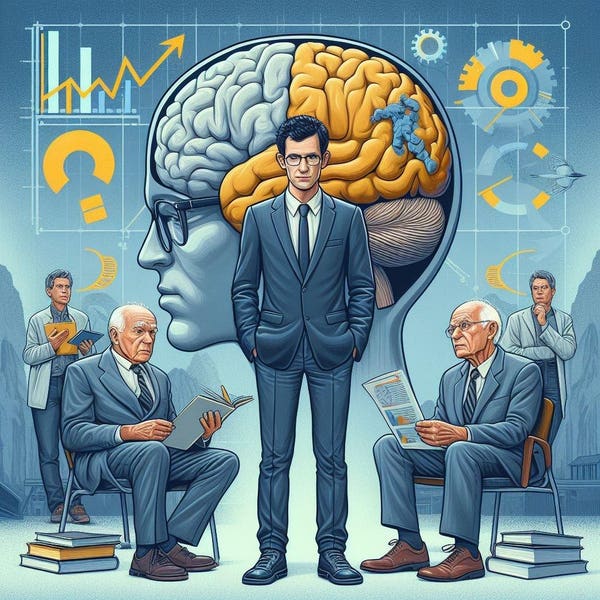There are individuals who profoundly impact your life through their direct presence, and then there are those who influence you without your conscious awareness of their existence. Daniel Kahneman falls into one of these categories for you, and regardless of which one it is, he has undoubtedly left an indelible mark on your life, much like he has on mine.
Daniel Kahneman, the Israeli-American Nobel laureate who transitioned from psychology to economics, passed away at the age of 90 this week. While his legacy extends far beyond a simple list, I aim to personalize his global influence for you by highlighting three ways in which Daniel Kahneman has altered your life, whether you realize it or not, along with three book recommendations. Let’s explore these transformations from a broader to a more personal perspective:
1. Revolutionizing the Field of Economics
Kahneman, in collaboration with his lifelong friend and research partner Amos Tversky, revolutionized the study of human decision-making by challenging the long-standing assumption in economics that humans consistently act rationally. They demonstrated the contrary reality.
If you’ve ever taken an economics course, you’re likely familiar with the concept of “all else being equal.” Kahneman and Tversky shattered this notion by revealing that circumstances are never truly equal. This insight has far-reaching implications that touch nearly every aspect of your life, from politics and finance to education and marketing.
To delve deeper into this transformative perspective, I recommend reading “The Undoing Project” by Michael Lewis. This engaging narrative offers a captivating introduction to the lives, friendship, and groundbreaking work of Kahneman and Tversky, making it a compelling read on behavioral economics.
2. Transforming Investment Strategies
Kahneman’s insights have significantly influenced the way we approach investing, particularly in two crucial aspects. Firstly, he highlighted that our investment decisions are often driven more by our fear of losses than the desire for gains, shedding light on our tendencies to make suboptimal choices in the financial realm.
Secondly, through the work of Nobel laureate economist Richard Thaler, as outlined in “Nudge” co-authored with Cass Sunstein, Kahneman’s principles have reshaped the landscape of retirement planning, notably impacting 401(k) plans. This influence has led to fundamental changes in how these plans are structured, emphasizing simplicity, automatic enrollment, and gradual contribution escalation for better long-term outcomes.
By aligning your investment behaviors with these insights, you can navigate the complexities of financial decision-making more effectively, ultimately securing a more stable financial future.
3. Illuminating Self-Understanding
Beyond economics and investments, Kahneman’s seminal work has profound implications for how we perceive and comprehend ourselves. Through his exploration of System 1 (intuitive, emotional) and System 2 (analytical, rational) thinking in “Thinking, Fast and Slow,” Kahneman revealed the intricate interplay between these cognitive systems, shaping our decision-making processes and self-awareness.
Understanding the dominance of System 1 in our daily choices offers valuable insights into our behaviors, emotions, and interpersonal relationships. By acknowledging the emotional underpinnings of our decisions, we can cultivate a deeper understanding of ourselves and enhance our interactions with others.
In conclusion, Daniel Kahneman’s legacy transcends disciplines, leaving an enduring impact on how we navigate the complexities of economics, investments, and self-reflection. May his contributions continue to inspire and enlighten generations to come.
